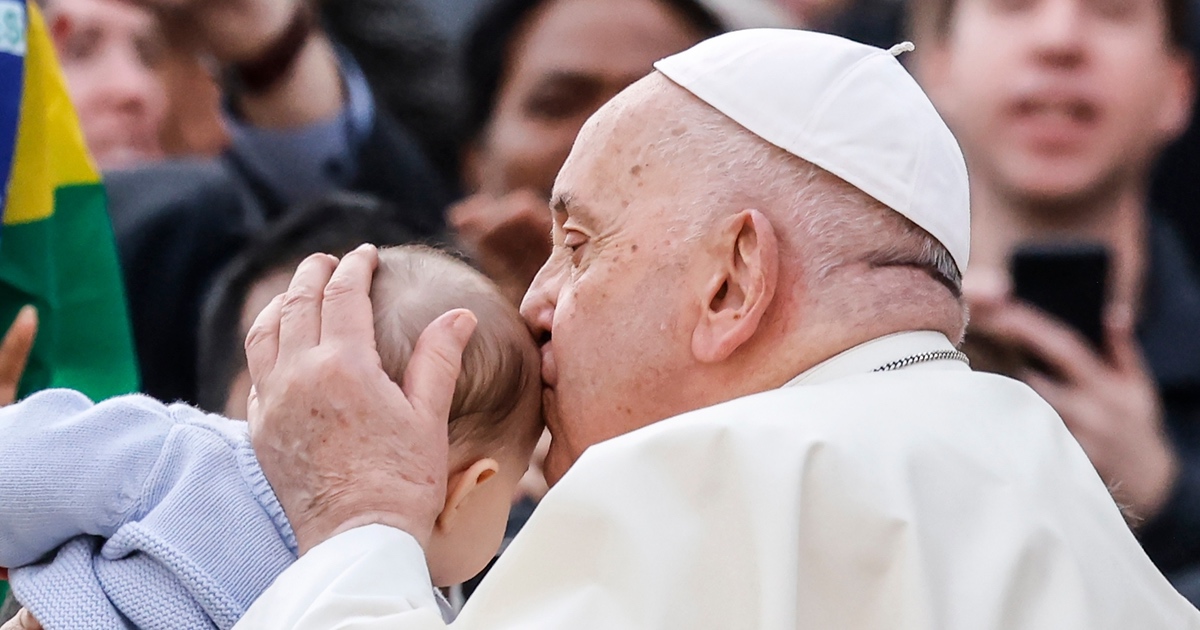On the Passing of Pope Francis

It is with solemn reflection that we at Campaign Life Coalition learned of Pope Francis' passing on Easter Monday morning, April 21. As head of the Catholic Church, Pope Francis was a global advocate for human dignity, consistently upholding the sanctity of life in many of his teachings and public addresses. His words and actions reinforced the Catholic Church’s long-standing commitment to the defence of life, from conception to natural death.
It was only a few months ago in his New Year’s Day address that Pope Francis, once again, asserted the “firm commitment” that followers of Christ must “respect the dignity of human life from conception to natural death, so that each person may cherish his or her own life and all may look with hope to the future.”
Throughout his pontificate, Pope Francis spoke out strongly against abortion, calling it a “grave sin,” a “crime,” “absolutely evil,” “truly murder,” “homicide,” and “a tragic defeat.” He likened abortionists to “hitmen” and “mafia.” At the same time, he emphasised “pastoral accompaniment” and “mercy” for sinners and those on the margins, including for those mothers who had aborted their children.
He reaffirmed the inviolable dignity of the preborn, stating that “it is not lawful to eliminate a human life to solve a problem,” and he consistently encouraged those engaged in pro-life work. He also strongly opposed physician-assisted suicide, warning against a “throwaway culture” that disregards the value of the elderly, the sick, and the disabled. His encyclicals and public statements reflected a consistent ethic of life, challenging nations that devalued human life in the name of “autonomy” or “convenience.”
At the same time, Pope Francis has sent confusing signals about his stance on the gravity of abortion by honours he bestowed on Emma Bonino, an Italian clandestine abortionist who entered politics and successfully campaigned to legalize abortion in the 1970s. Bonino co-founded the Information Centre on Sterilization and Abortion and admitted to committing over 10,000 illegal abortions using a makeshift device operated by a bicycle pump. In 2016, Francis called her one of Italy’s “forgotten greats,” and received her in a private audience that same year. In 2022, he said: “I have great respect for Emma Bonino.” In 2024, the Pope personally visited Bonino in her home after she had returned from the hospital, bringing her chocolates and roses. According to Bonino, Francis called her an example of “freedom and resistance.”
Pope Francis’ tenure has also included other controversies, particularly regarding his novel approach to some moral and doctrinal questions that have long been considered settled within the Catholic tradition, including his approach to Holy Communion for those living in adultery, blessings to homosexuals who present themselves as a “couple,” and his concept of the place of Christianity among other religions. Doctrinal positions and pastoral practices he advanced that, at times, were received as at odds with previous perennial Catholic teaching, sadly, resulted in much confusion and even division within the Church.
Pope Francis’ commitment to the preborn, the vulnerable, and the marginalized will be remembered as one of the defining aspects of his papacy. Even amid theological and pastoral disputes, his voice remained firm in defending the fundamental right to life.
We pray that the next leader of the Catholic Church will build upon what Pope Francis affirmed about the dignity of every human life—offering clear, courageous, and unwavering leadership in defence of the most vulnerable among us.
